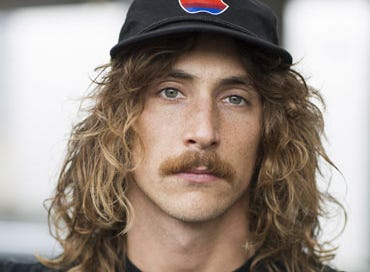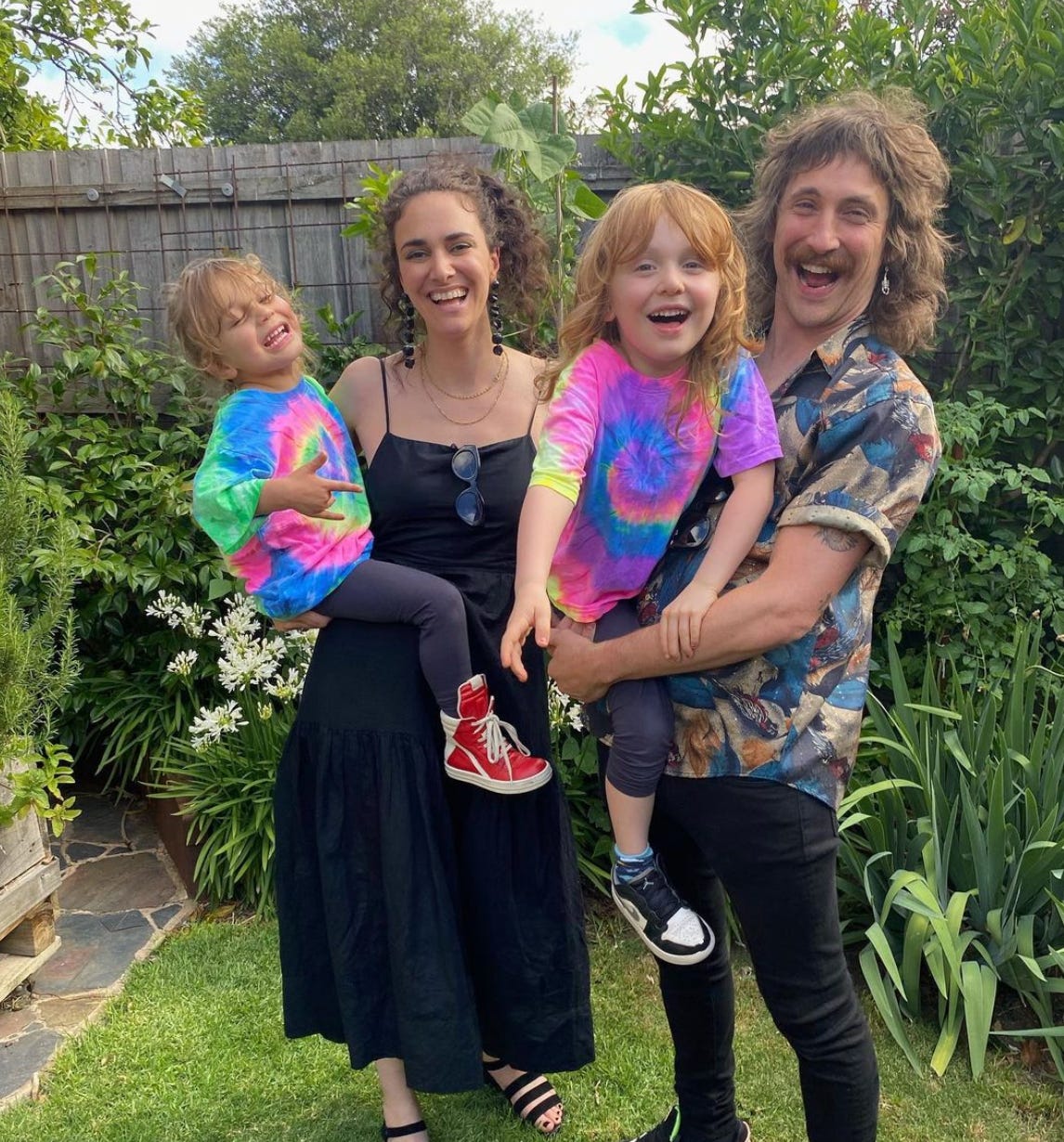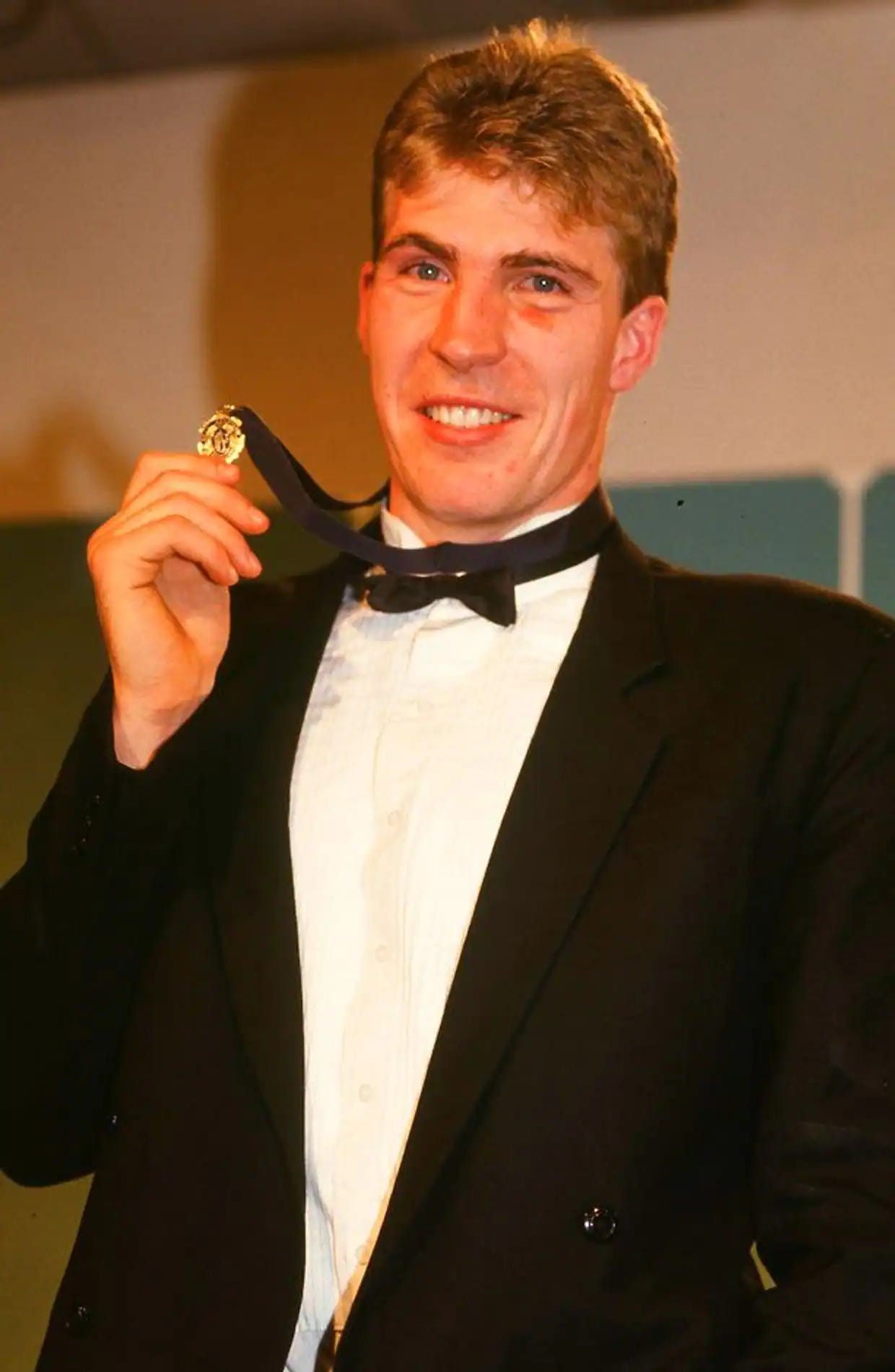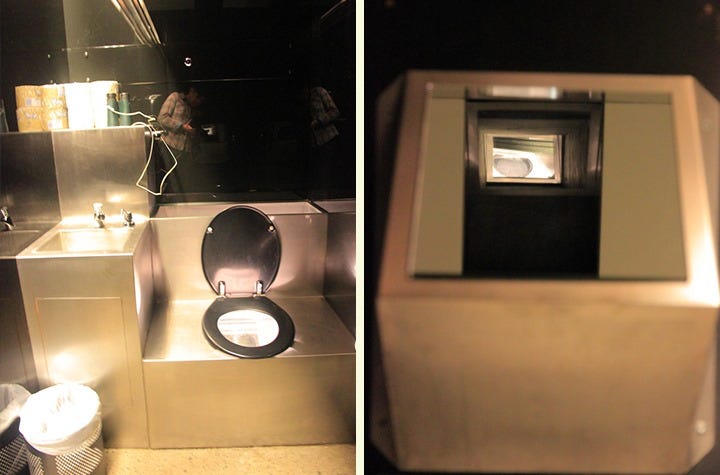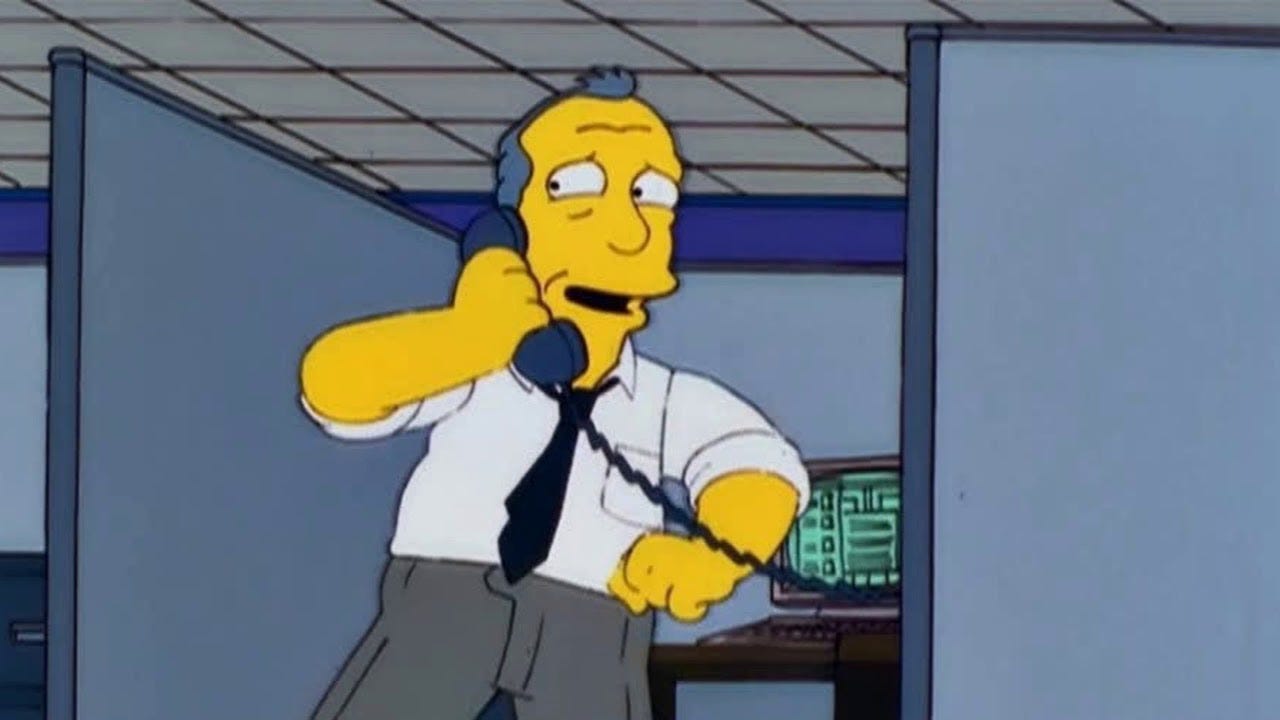🧁 redefining masculinity with ryder jack
Dear everyone,
My wish, for us all, is to climb atop a branch in our favourite purple hat (mardi gras vibe). To find a comfortable spot. To stare right down the barrel of the camera and say, hey, my life isn’t perfect but I am vibe elite regardless.
Yes.
I am feeling a lot this week. Selfishly so, almost. I know there will be employees who won’t read this because they are displaced by these horrible floods. I want to send them an irreligious prayer.
I hope you are ok? I love you all so much!
Tonight’s newsletter is food for thought. If it were a dish, it would be a real loaded nachos affair. Layers. Crunch, impact. Chilli to provoke, guacamole to soothe and inspire.
In it, I’m speaking to a man named Ryder Jack. He works for Tomorrow Man, which I regret to inform you is not a Terminator spin-off, nor a Groundhog Day reboot.
Tomorrow Man is an organisation that provides workshops for male identifying people aged 15 and up, giving them space to explore and redefine the current state of masculinity.
I love this concept. I think taking a proactive approach towards men’s general health is an investment for the whole community. Men die by suicide in far greater numbers than women – they’re also far more likely to perpetrate family violence, too. Anger and sadness can, when left unchecked, turn malignant. So finding ways to express it without hurting others is a wholly worthwhile pursuit. Positive change is always possible!
I chose to publish this in the same week as International Women's Day because, to me, the safety of women is in the hands of men.
It might seem counterintuitive, interviewing a man on International Women’s Day. I chose to do so because the safety of women is in the hands of men.
But violence against women is such a large problem in Australia and I believe it’s up to men to change that. Encouraging the exploration of emotions (especially the ones that are often quashed in the name of masculinity!) is a crucial step.
Ryder knows this. To enter a room full of men, especially teen ones who are fuelled by bravado and sour straps, and have them to trust you, and to be vulnerable in front of one another, is a step in the right direction.
Very excited for this one. Let’s get to it!
WHO
F: who are you?
R: I’m Ryder Jack. I’m 35 years old. Faja to Wolfgang (5), Zephyr (3) and partner of Sivaan. It’s weird being a dad cos I still feel like a kid. I’m a dickhead with a heart of gold. I’m unapologetically authentic, cheeky and have always been very curious of people.
WHAT
F: What do you do?
R: I’m a facilitator and creative, who works for an incredible organisation called Tomorrow Man which travels around the country running workshops for male identifying people aged from 15 and up, exploring the current state of masculinity. We ask the boys/blokes, what’s working? What isn’t working? And what does a man of tomorrow look like? I work with and alongside another organisation called Tomorrow Woman doing similar work in the female identifying space. Excitingly, we’ve also launched Tomorrow People this year, bringing all the genders together. It’s a very heated and confusing time for gender - a lot of change and evolution and I think it’s important for people to unite and to be able to have tough conversations (with care, curiosity and respect).
STUDY
F: how did you get into it? Did you study?
R: Ever since I was a kid, I’ve always been very extroverted and loved being the centre of attention. I’ve also always been a massive smart-arse. I had a lot of potential at school but didn’t always use my power for good. I was addicted to getting laughs, often giving teachers a hard time and embarrassing my mates. My favourite teacher, Mr Velleman, used to play footy with a bloke called Jim Stynes and sent me to a leadership workshop for thousands of young people, run by the Jim and his Reach Foundation. The workshop’s purpose was to select 30 participants to undergo an intensive facilitation training process aiming at getting young people to inspire other young people.
A yung Jim Stynes
Jim Stynes and that program changed my life and has made me the man I am today. I volunteered and then worked at Reach for around 12 years. Throughout my 20s I also produced documentaries and worked in TV production, which equipped me with my communication, conversational and trust building skills. When I finished high school I studied theatre arts at university, but didn’t give myself the chance to become a failed thespian. Besides that, no “official study”.
GROWING UP
F: where’d you grow up?! I grew up in Mount Waverley in Victoria and I think suburbs can really shape your view on the world — or you can have this really strong attachment to that place. I don’t know how Mt Waverley shaped me beyond relating to the mediocre-ness of Springfield?
R: I grew up in the mean streets of Hawthorn… West. Nah kidding, it was a lovely place to grow up. My parents have always been fun. Still to this day, they are loose and like to party. When I was a kid, they would take my little brother and I to all of their fun - parties, the pub, etc. Because of this, we always got to meet eclectic, diverse, sometimes flawed, but always fascinating people. It gave me a lot of confidence and I also think it’s where my curiosity for people comes.
WHY
F: I’m really interested in why people choose activism, or choose to work with the community to make positive impacts. Why did you get into what you got into what you do?
R: I feel very privileged to say that my parents have never stopped giving me endless, unconditional love & support (which I know many others don’t always receive). They’ve also always made me feel like a rockstar. That’s one of the reasons I do this work because I want to make participants feel the way my parents made me feel. As epic as they are, they’ve also had at times, a very dysfunctional relationship. When I was a kid, it used to really affect me, as I’d try to counsel them and save their relationship. I only worked out recently that when I was around 14, they were having a gnarly fight, I was in my room crying and I promised myself that I would never let their relationship affect me emotionally ever again.
As a result of this, still to this day I have major blocks when it comes to crying. I consider myself an emotional person who feels a lot of things, but I still struggle to cry. Tomorrow Man’s workshops encourage young men to build emotional muscle to prepare them better for life’s many challenges. I’m ashamed to say that as a kid I was quite hard on my little brother, who has always been quite flamboyant and feminine. Due to societal BS, I always wanted a “boy’s boy of a brother” - someone I could wrestle with and kick the footy with. Even though I gave him a hard time, I was also very protective of him when other kids would call him “gay”. Maybe part of what I do today is aiming for redemption for how I treated him and wanting others not to be harmed by the straitjacket of gendered stereotypes.
FROOMY INTERJECTION: let the record state Ryder’s brother is a unicorn. Literally gorgeous. Actual designer at Rick Ownes. Just one of the many Australians who make waves overseas, right under our noses.
FAMILY
F: you have kids, right? How old are they — are they at the age where gender constructs come on? How do you talk so small children about this stuff? I’m also interested in what they learn in school/pre-school. Have they come home with some traditional views, or have they been influenced by other children who perhaps aren’t as modern or plugged in as your fam might be?
R: At the park last week, I was with Wolfie, my 5 year old and I said to him: “Wolfie, there are 3 skills I think that are important for kids to be able to do:
Swim without floaties
Ride a bike without training wheels
Be able to do the monkey bars” (which he’s currently struggling at all 3).
He replied: “Daddy, shouldn’t me being happy be more important!?” Touche. I’m proud of the fact that my boys are emotionally intelligent. What’s most important to me is that they are healthy, compassionate, empathetic and in touch with their emotions. When you have a baby, they are essentially a blank canvas. My partner and I have done everything in our power to not instil or role model outdated gender roles. But unfortunately as soon as you send them out to daycare, kindergarten, school or “the real world”, they learn pretty quickly that “boys do this..”, “boy’s can’t do that..”, “girls don’t do that..”, etc.
I tell my boys that these are “the silly pretend girl and boy rules”. All that I can control is to make them feel loved and hopefully confident enough in themselves not to cave into these societal pressures. But all parents have this responsibility and scarily most of these rigid stereotypes are being unconsciously enforced by them.
FROOMY INTERJECTION: This is not Ryder’s son, but it is the son I am manifesting to have, a simple alien child, genderless in spirit and supernatural in vibe.
WOW
F: what’s the most surprising thing you’ve found in when going and doing these workshops? Any stories that stick out?
R: The best thing about what I get to witness most days, is men breaking their own myths of masculinity by authentically and courageously speaking from the heart. Some think their dick will fall off if they cry in front of another man, but there’s something very “masculine” about a bloke shedding some tears.
I was in a regional town last week near Tamworth in NSW and this guy in his 40s had had a shocking run. Misso cheated on him, took the kids and then he completely spiralled (Just wanting to make clear, I’m not blaming her, I’m sure he played a massive part in the relationship/family breakdown as well).
He discovered he was bipolar, turned to drinking and partying and everything fell apart. At his lowest point, he realised he needed help and his family took him and helped to rebuild him. As he was sharing this during the workshop he said: “Look at me, I’m opening up like a flower”. I get to hear poetic things like this often, especially from men who are speaking from the heart for sometimes the very first time. The other gem he left us with when talking about his sister supporting him: “She’s not my rock, she’s more like a boulder” - stunning. After doing this kind of work for almost 20 years, I still get goosebumps when people share these epic stories.
HOME FOOD
F: Gear switch. Is there a meal your parent(s)/guardian made you growing up that helped you connect to your roots? (I don’t know what your roots are — you’re welcome to share!)
R: I recently lost my incredible Sasha (grandmother) who was so fierce and glamorous (Sophia Loren vibes). She was 7th generation Israeli and her cooking style was the hybrid of Middle Eastern and Eastern Europe cuisines. She used to make slow cooked tomato-garlic-sauce eggplants which was my favourite.
BEST BATHROOM
F: Sometimes I’m really floored by beautiful bathrooms. The bathrooms at Bills in Bondi is a moment. I truthfully believe a great bathroom can elevate a dining experience — kind of like how you can improve a Sim’s mood when you add art to their house. Can you think of the most moving bathroom you’ve visited?
R: It’s not very original but surely the hidden toilet at MONA that shoots a camera or mirror towards your noos when you’re pooping and you can see what it looks like right in front of your eyes.
F: Wow I kinda can’t even cop that. 🥴
SIMPSONS
F: What character do you most relate to?
R: Gil the failed salesman with a hint of Moe, a sprinkle of Troy McClure and dash of Ned Flanders.
CEO
F: And finally. I haven’t spoken about myself for a while. Are there any questions you would like to ask the CEO? I am a fount of knowledge.
R: The rise of female CEOs is making the world a significantly better place. What are your suggestions to tighten the gender pay gap much sooner than it’s tracking?
F: Wonderful question, Ryder. It’s taking every bone in my body to not make this a joke and instead answer honestly, so here goes. My first tip would be to get comfortable talking about money. A practical step you can take to help yeet yourself up a pay packet is to actually figure out what everyone else is earning, and use that as ammunition in your performance review.
Learning that someone just as qualified as you is making a chunk more cash is very fucken disheartening. But once you rip the bandaid off, it’s a superpower you can harness when asking for a pay rise. Your boss is banking on you chickening out in the performance review. Come prepared, with a look in the eye that says, eat my ass wiseguy.
Ta da!
Thanks for reading and I’ll see you next week for another round of TOP HAT TIPS.
My love love,
F


